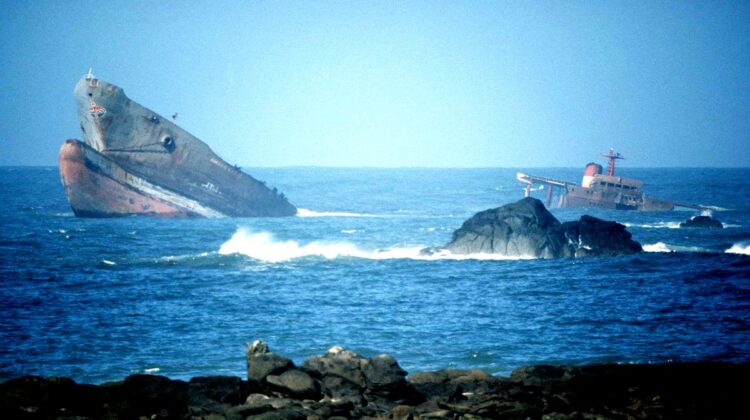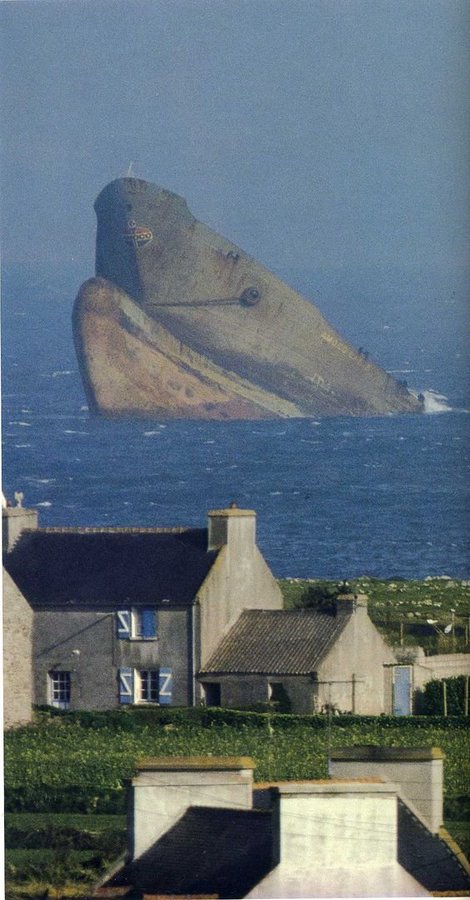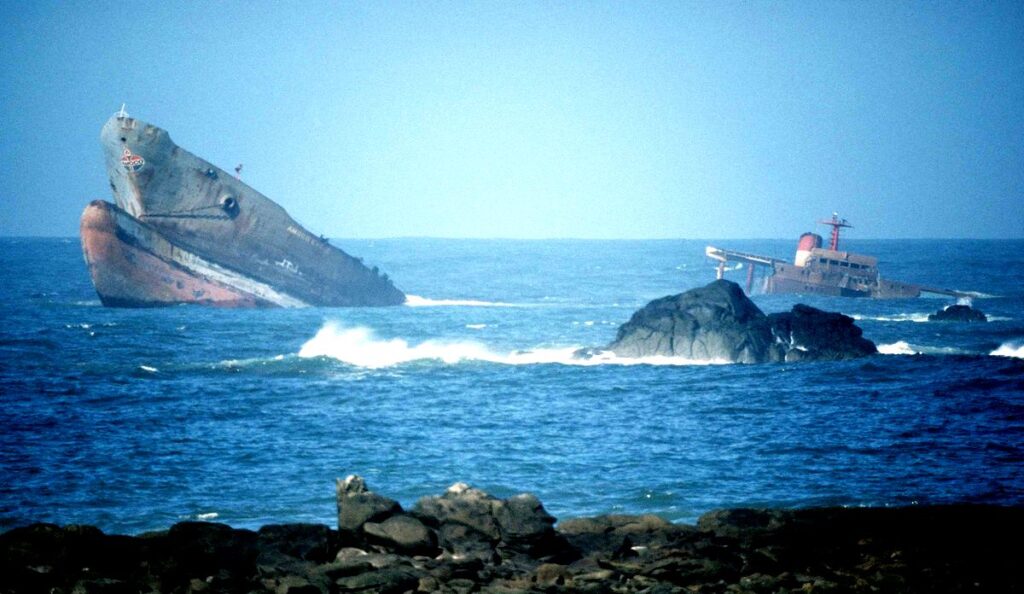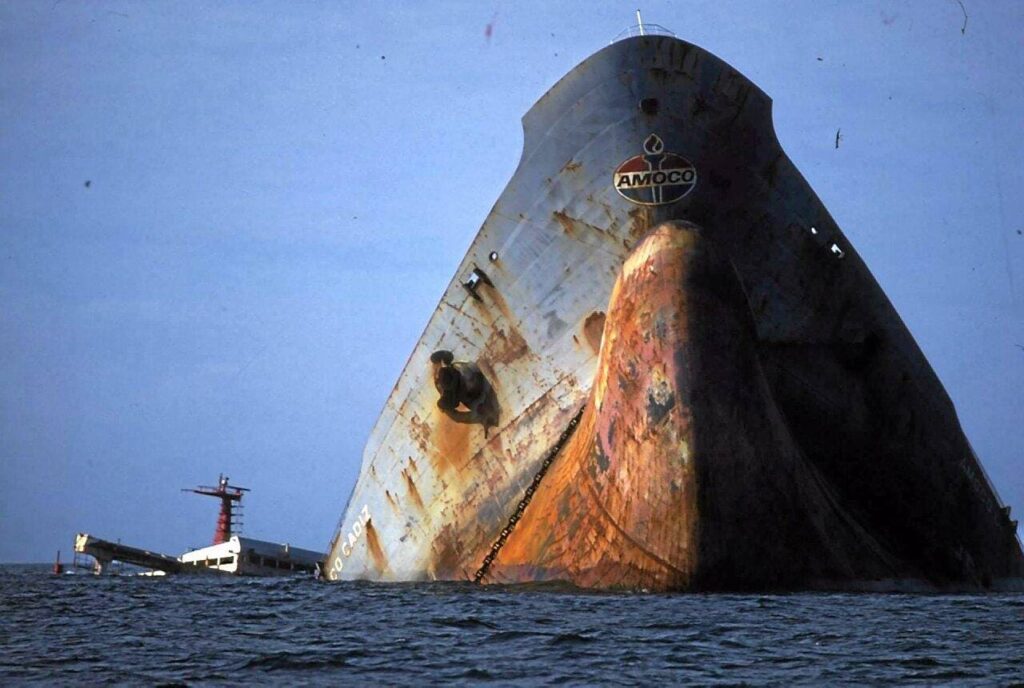
In the annals of maritime disasters, few images capture the imagination quite like the famous photograph of the tanker Amoco Cadiz. In 1978, this colossal vessel ran aground off the picturesque coast of Brittany, France, leaving an indelible mark on both the environment and the collective memory of the incident. The haunting resemblance between the stranded tanker and a giant whale surfacing is an uncanny convergence of nature and human endeavor.
The photograph, frozen in time, portrays the Amoco Cadiz at a moment when it emerges from the turbulent depths, akin to a magnificent cetacean breaching the surface. The sheer scale of the ship, dwarfing the surrounding coastline, only amplifies the resemblance to a colossal marine creature. It is as if the very essence of the ocean had coalesced into this haunting visual tableau.

The Amoco Cadiz, carrying over 1.6 million barrels of crude oil, met its unfortunate fate when it encountered treacherous weather conditions. The vessel succumbed to the merciless power of nature, its hull succumbing to the relentless forces of wind and waves. The resulting environmental catastrophe left a lasting impact on the delicate ecosystems of Brittany’s pristine shores, forever altering the marine and terrestrial life in the area.
The photograph serves as a testament to the awe-inspiring yet unpredictable nature of the sea. It encapsulates the fragility of human endeavors in the face of formidable natural forces. The image elicits a sense of both admiration and sadness, a reminder of our vulnerability and the need for responsible stewardship of our environment.

Decades after the incident, the haunting similarity between the Amoco Cadiz and a majestic whale still captivates the imagination. It serves as a stark reminder of the interconnectedness between human activities and the natural world. The image beckons us to reflect on the consequences of our actions and the importance of safeguarding our oceans and coastlines.
Although the Amoco Cadiz disaster stands as a tragic chapter in maritime history, it also sparked a global conversation about the need for stricter regulations and environmental protection measures. Lessons learned from this incident have played a significant role in shaping maritime safety practices and raising awareness about the potential ecological impact of large-scale accidents.

As we gaze upon this iconic photograph, let us not only marvel at its aesthetic appeal but also recognize the profound implications it carries. May it inspire us to foster a deeper respect for our environment, and may we strive to protect our oceans and coasts for generations to come.

Leave a Reply